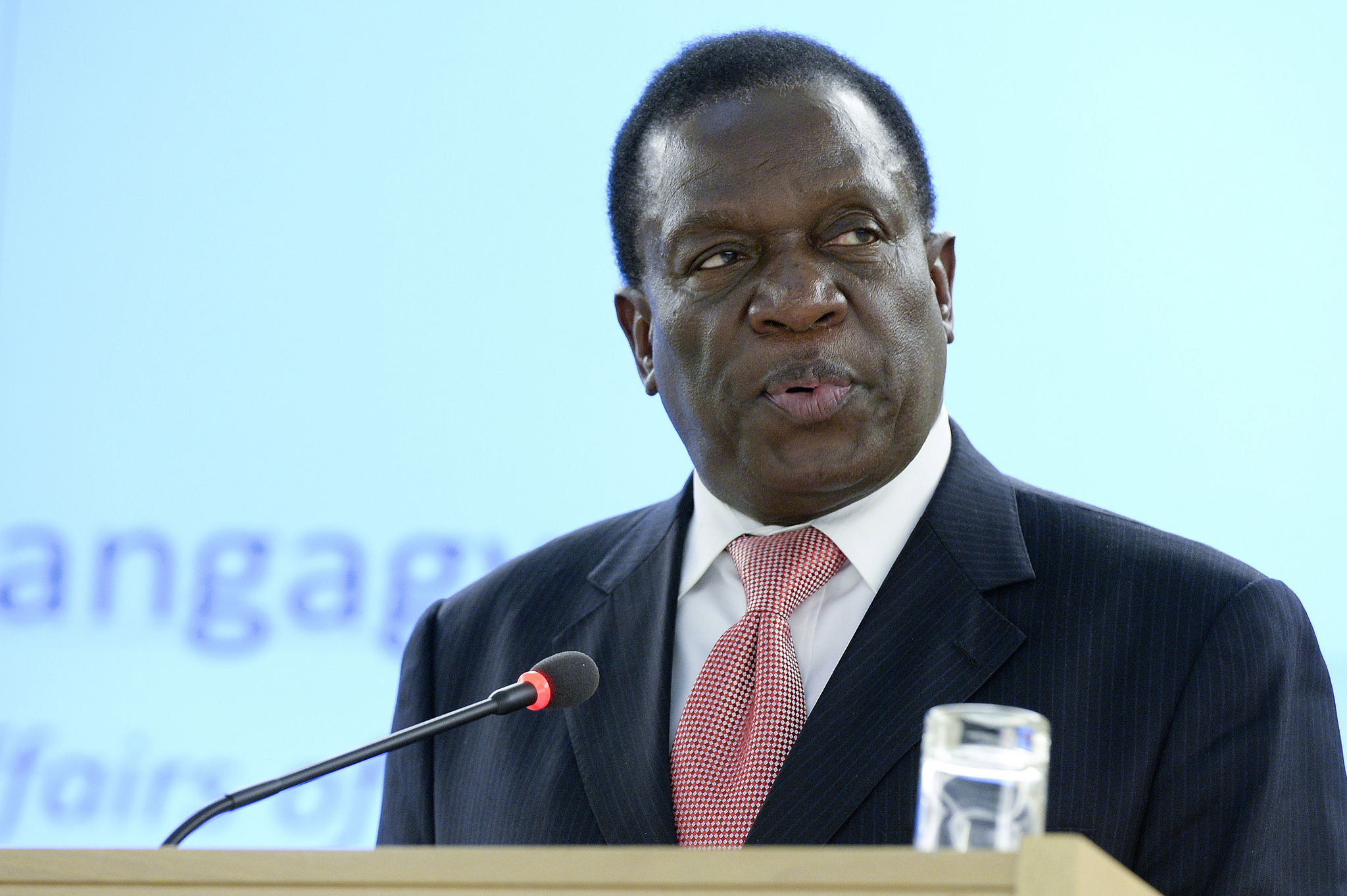
HARARE, Zimbabwe — Zimbabwe’s president announced on Sunday that he will return home and skip the World Economic Forum after a week of turmoil in which activists have said at least a dozen people have been killed in a government crackdown.
President Emmerson Mnangagwa had been under growing pressure to come home from a two-week overseas visit as accounts emerged of abuses by security forces, including dozens of people wounded by gunfire and others hunted down in their homes and severely beaten.
Zimbabwe has seen days of unrest since Mnangagwa made an announcement more than doubling fuel prices that made the struggling country’s gasoline the most expensive in the world.
Mnangagwa in his Twitter post didn’t mention the violence, saying only that he is returning “in light of the economic situation.”
The first priority, he said, “is to get Zimbabwe calm, stable and working again.”
At Davos, he planned to appeal for foreign investment and loans to the southern African nation, but the visit had been expected to be a challenge. His Davos visit a year ago came shortly after he took over from longtime, repressive leader Robert Mugabe, a move cheered by Zimbabweans and the international community.
A year of troubles in which his administration failed to improve the collapsed economy, narrowly won a disputed election and violently put down anti-government protests has caused widespread concern.
Growing frustration over rising inflation, a severe currency crisis and fuel lines that stretch for miles finally snapped after Mnangagwa announced the fuel price increase.
Civic leaders called for Zimbabweans to stay at home for three days in protest. Other people took to the streets. Some looted, in desperation or anger. The military was called in, and with Mnangagwa overseas, the hard-line former military commander and Vice-President Constantino Chiwenga was left in charge. A crackdown began.
More than 600 people have been arrested, among them a prominent pastor and activist, Evan Mawarire, who has supported peaceful protests on social media and now faces a possible 20 years in prison on a subversion charge. More than 400 people have been denied bail, said his lawyer, Beatrice Mtetwa. She said she will apply for bail at the High Court Monday. She said described the case against Mawarire as a “travesty of justice.”
Mawarire has called it “heartbreaking” to see the new government acting like that of former leader Mugabe, who stepped down under military pressure in late 2017 and was succeeded by former protege Mnangagwa.
In what critics have called an attempt to cover up abuses, the government in the past few days has imposed an internet shutdown across the country. On Monday, the High Court will hear a case challenging the internet restrictions. Although access to the internet is back, social media outlets such as Facebook, Twitter and Whatsapp are still blocked.
Jacob Mafume, spokesman for the opposition Movement for Democratic Change party, said Mnangagwa’s return “was long overdue, in the first place he was not supposed to travel abroad when the country was burning from the economic and political crisis. … However, we don’t have confidence that his return will solve anything unless he opens lines of communication. What is needed is political dialogue but Mnangagwa has been avoiding us.”
The Zimbabwe Catholic Bishops’ Conference last week lamented the government’s “intolerant handling of dissent” and its failure to halt economic collapse, concluding that “our country is going through one of the most trying periods in its history.”